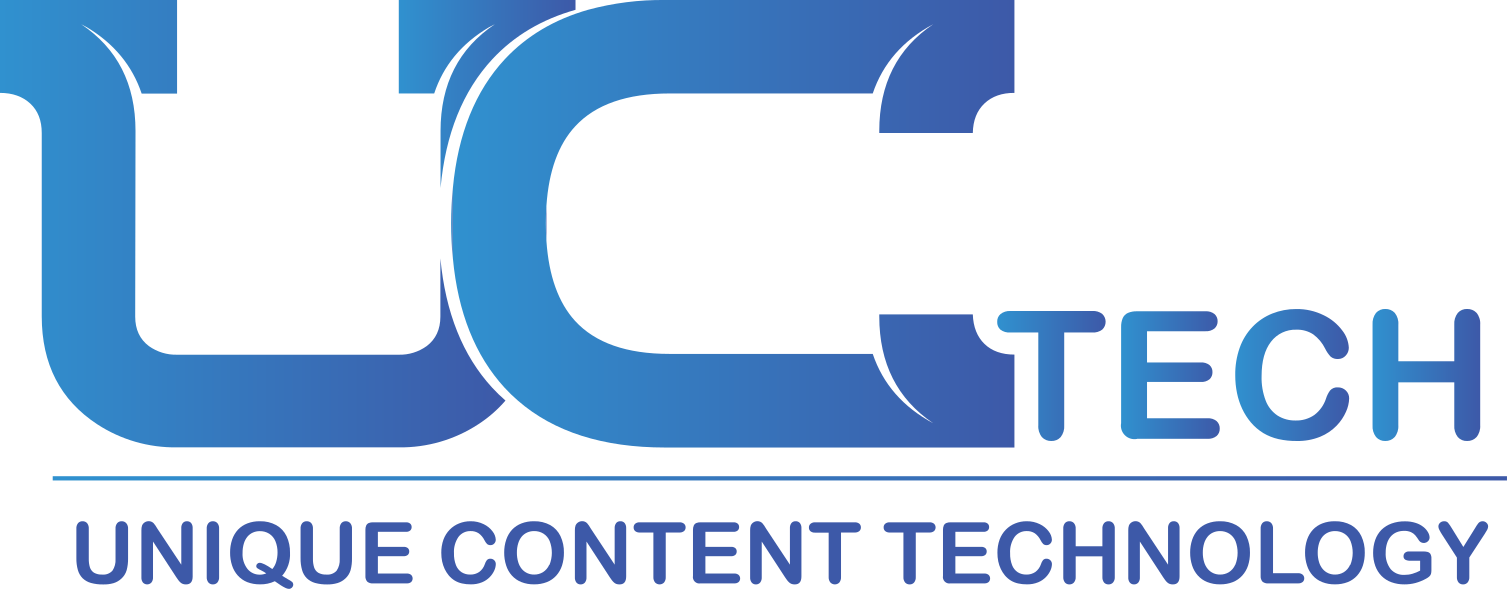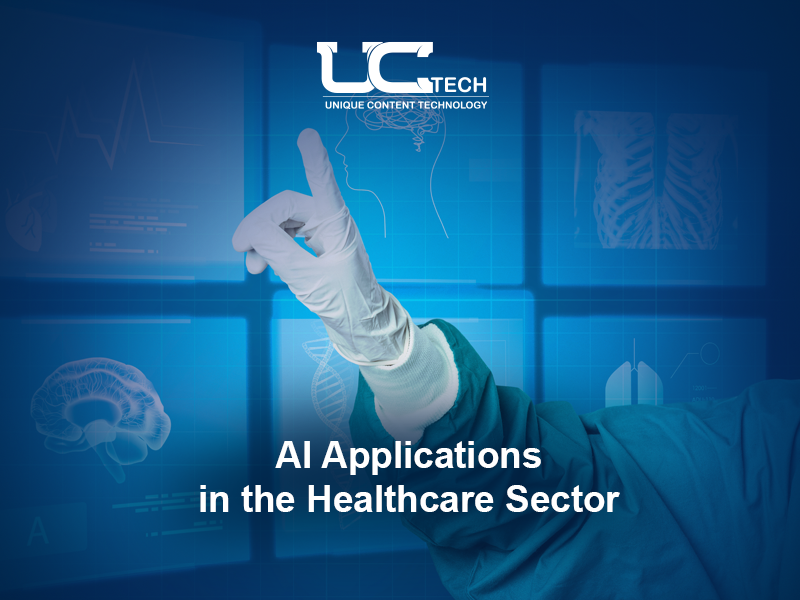Is artificial intelligence the game-changer the healthcare industry has been waiting for?
Across Saudi Arabia and the wider Gulf region, the digital transformation of healthcare systems is accelerating.
Boosting business efficiency with smart tech has become a top priority for organizations aiming to stay competitive. Technologies like AI, IoT, and automation streamline processes, reduce operational costs, and enhance productivity across departments.
At the heart of this transformation lies artificial intelligence (AI), reshaping clinical workflows, elevating diagnostic precision, and revolutionizing patient care.
As public and private healthcare institutions strive for operational excellence and enhanced patient outcomes, AI is becoming not just an option, but a strategic necessity.
The Rise of AI in Modern Healthcare
Artificial intelligence is redefining modern clinical practice. It enables faster decision-making, reduces human error, and brings new levels of efficiency to medical processes.
In line with Saudi Vision 2030 and the national digital health strategy, hospitals and medical centers across the Kingdom are increasingly adopting AI-powered solutions.
These technologies support early disease detection, predictive analytics, and real-time monitoring, all of which are critical in high-stakes medical environments.
Artificial intelligence in modern clinical practice is revolutionizing the way healthcare professionals deliver care. From streamlining administrative workflows to enhancing diagnostic accuracy, AI technologies are now deeply embedded in everyday medical routines.
Doctors are increasingly relying on AI-powered tools to support clinical decisions and ensure faster interventions.
These systems not only reduce human error but also enable a more personalized and data-driven approach to patient care. As a result, AI is becoming an essential component of modern healthcare strategies worldwide.
Enhancing Diagnosis Accuracy and Treatment Speed
One of the top AI applications in Saudi hospitals is improving the accuracy of diagnoses. Machine learning algorithms trained on vast datasets can detect patterns in imaging scans, lab results, and patient records far beyond human capability.
This enhances the ability of doctors to make faster, more accurate decisions, especially in complex cases such as cancer, stroke, and rare genetic disorders.
How artificial intelligence is used in disease diagnosis? The answer is concluded that Artificial intelligence is significantly improving disease diagnosis by analyzing complex medical data with remarkable speed and accuracy.
AI algorithms can detect patterns in imaging, lab results, and patient histories that might be overlooked by the human eye. In fields like oncology and cardiology, AI helps identify early signs of diseases, enabling prompt treatment and better outcomes.
Additionally, machine learning models are continuously trained to enhance their diagnostic performance over time. This evolution is making AI a valuable partner in reducing misdiagnosis and improving patient care.
reed more: Why Visual Data Analytics Matters in Pattern and Problem Detection
AI in Radiology, Diagnostics, and Lab Analysis
AI-powered imaging and lab diagnostics are among the most impactful use cases. For example, AI algorithms are being used to identify abnormalities in radiological scans such as MRIs, CTs, and X-rays. This reduces the workload on radiologists and increases throughput in busy departments. Similarly, smart lab systems use AI to automate test result interpretations, reducing turnaround time and error rates.
Hospitals in Riyadh and Jeddah have successfully implemented AI platforms that integrate radiology and pathology data, accelerating diagnostic processes and improving treatment outcomes.
Predictive Analytics for Early Intervention
Predictive analytics for critical cases enables healthcare providers to anticipate complications before they occur. By analyzing historical data and real-time patient information, AI systems can flag early warning signs of deterioration, such as sepsis or cardiac arrest.
These insights allow clinicians to intervene early, significantly increasing patient survival rates. AI in early disease detection is especially important in managing chronic diseases like diabetes and heart disease, which are highly prevalent in the Gulf region.
Top data analytics tools are empowering organizations to make smarter, faster, and more strategic decisions. Solutions like Power BI, Tableau, and Google Looker are widely used to transform raw data into actionable insights.
These platforms offer real-time dashboards, predictive analytics capabilities, and user-friendly interfaces that cater to both technical and non-technical users. By utilizing advanced visualization and data modeling, businesses can identify trends, track KPIs, and optimize performance.
In today’s data-driven world, choosing the right analytics tool can be a game changer for any enterprise.
Remote Monitoring and Critical Care Support
Using AI for real-time patient monitoring transforms the way hospitals manage critical care. AI-enabled wearables and remote monitoring tools track vital signs and send alerts when deviations are detected. This is crucial for patients in ICUs or those recovering at home post-surgery.
Healthcare facilities are also using AI chatbots and virtual assistants to handle follow-ups, medication reminders, and mental health check-ins—enhancing patient engagement and reducing hospital readmissions.
Real-World Examples from Saudi Arabia
Saudi hospitals are leading the way in AI adoption:
- King Faisal Specialist Hospital in Riyadh uses AI-based diagnostic platforms to tailor treatment plans for oncology patients.
- King Fahad Medical City has integrated AI tools to analyze radiology scans, reducing diagnosis time for complex neurological cases.
- The Ministry of Health has launched nationwide AI initiatives to implement modern knowledge management systems and AI for medical data management, ensuring smarter workflows and efficient resource allocation.
These cases highlight the real-world impact of artificial intelligence in healthcare systems development across the Kingdom.
AI as a Strategic Business Tool
Beyond patient care, AI is also a business enabler. Institutions using AI solutions for businesses report faster decision-making, better resource utilization, and higher operational performance. For C-level executives and IT directors, investing in advanced business intelligence tools and AI consulting for enterprises is a strategic move to stay competitive.
Moreover, predictive analytics for business decisions helps administrators forecast demand, optimize staffing, and improve procurement planning. These tools are vital components in digital transformation for companies seeking data-driven leadership in healthcare.
Conclusion: Time to Embrace Smart Healthcare.
As Saudi Arabia advances toward a tech-driven future, the role of artificial intelligence in healthcare becomes more crucial than ever. From enhancing patient experience with AI tools to streamlining diagnostics and supporting clinical staff, AI is proving to be a catalyst for smarter, more responsive care systems.
At UCtech for Information Technology, we specialize in delivering AI applications in Saudi Arabia tailored to the healthcare sector. Our enterprise data analytics services and smart tech solutions help organizations unlock their full potential.
Contact us today to explore how our AI-powered solutions can transform your healthcare facility into a model of innovation and excellence.

